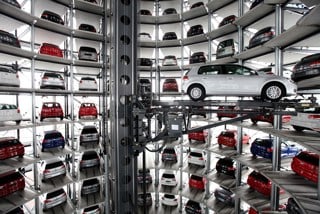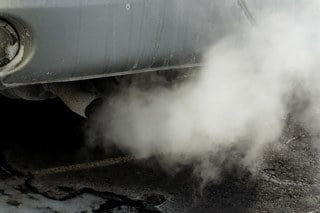The Volkswagen Group NOx emissions scandal has polarised views. On one side were fleets and leasing companies who believed the impact on demand (new and used cars) would be minimal; on the other were fleets that were considering whether to drop Volkswagen Group brands from their choice lists, primarily on a social responsibility rationale, and leasing companies which were reporting a drop off in used demand and a hit to residuals.
More sat in the former camp than the latter – they were willing to give Volkswagen the benefit of doubt, recognising that, ultimately, it made excellent cars.
However, with the announcement that 800,000 cars have false CO2 emission figures, the game changes. We don’t know how many are sat with fleets in the UK, but those that are will most likely have been underpaying on BIK and VED.
It’s unlikely that the Government will chase drivers for the shortfall; but don’t rule out a sizeable bill heading Volkswagen’s way (the company has already said it would foot the bill for any charge).
VW officials say the figures may have been understated by 10-15%. Take the Golf 1.6-litre diesel at 99g/km. This year’s BIK is 17%; however, if its official CO2 is actually 10% higher, at 109g/km, the BIK rises two tax bands, to 19%. As a rough calculation, the impact over a four-year operating cycle would be £335. It doesn’t seem a lot, but say a quarter of the 800,000 cars are in the UK, with half on fleets (i.e. 100,000); this equates to a tax shortfall of £33.5 million. And that’s before fleets and drivers start to consider the fact that their fuel efficiency calculations are based on a false figure.
Back to NOx, and still no confirmation of the fix those vehicles require, although Volkswagen Group director Paul Willis was due to respond to further questions from the Transport Select Committee last week. No news yet.
The ‘pregnant pause’ in communications, as some are calling it, is most likely due to the fact that Volkswagen has yet to find a way to resolve the NOx issue on the 400,000 1.6-litre diesel models in the UK that require new fuel injectors without affecting performance.
Then there are the supply issues – where will the injectors come from? Manufacturing plants are operating at full capacity making injectors for new cars, so a decision will need to be taken to hive supply away for the recalled cars: what does this mean for global new car supply?
The slowdown in the Chinese market may be an unlikely saviour, but it’s clear that, with NOx and CO2 concerns, Volkswagen is wrestling with a massive issue with multiple dilemmas. The drip-drip feed of bad news is not helping; it needs to be providing answers – and soon.





















Sage & Onion - 12/11/2015 12:15
Yes we need answers soon, and this article partly answers questions I asked on another article earlier. But I would urge all Fleet Managers to do their own real world co2 calculations, and compare them to the official figure for those cars because in my fleet the VW brands have a much smaller variance than other brands. This is an important exercise if fleets are adopting the corporate & social responsibility stance, because official Co2 ratings can not be relied upon from any of the manufacturers in my opinion and to take a CSR stance based on unreliable official data is foolish and perhaps a lazy response to the issue. The real world analysis, if you decide to do it, will lead you to draw your own conclusions, and it would be interesting to see if I am alone in my findings or if it is a common trend.